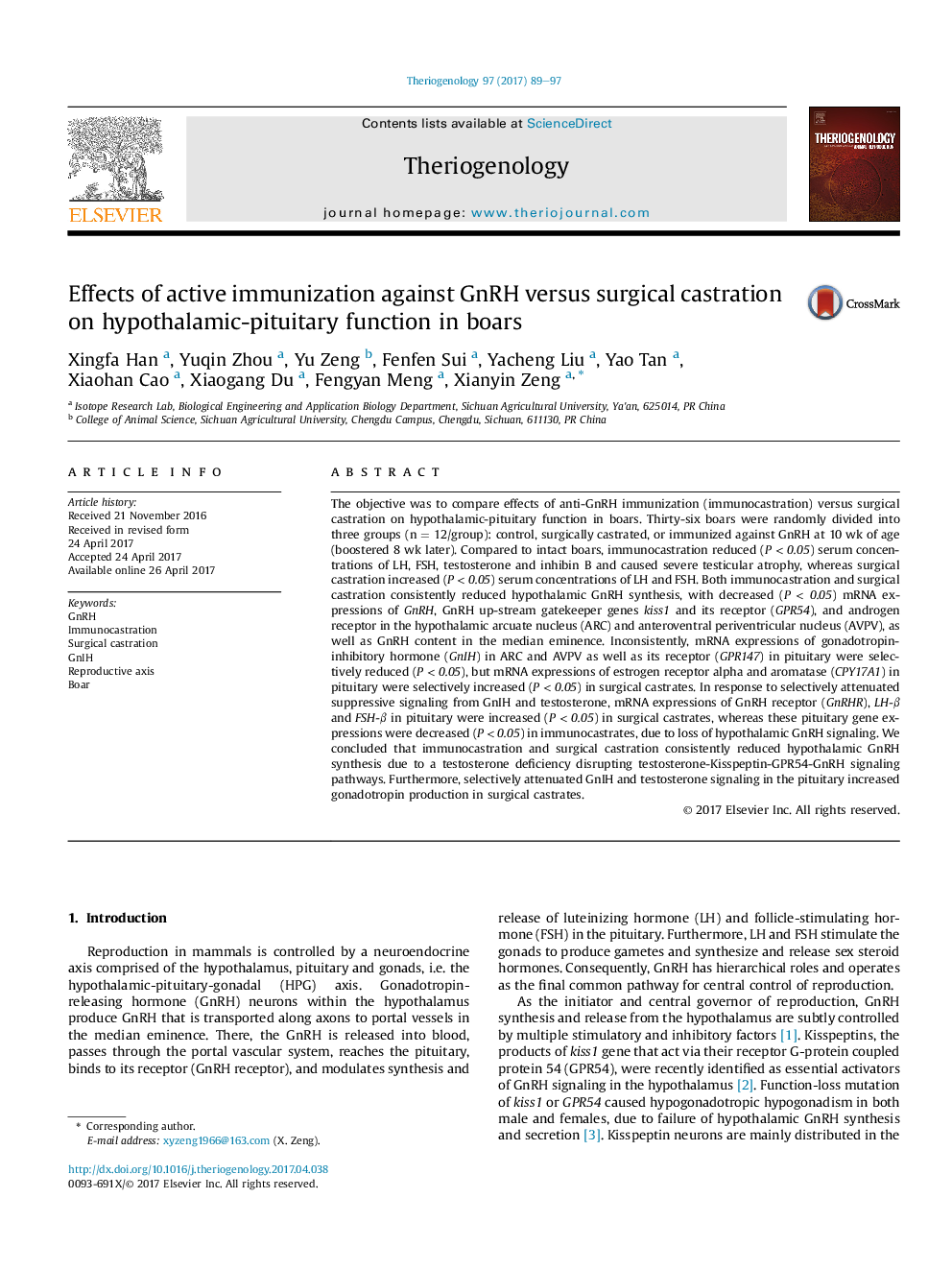| کد مقاله | کد نشریه | سال انتشار | مقاله انگلیسی | نسخه تمام متن |
|---|---|---|---|---|
| 5523168 | 1546072 | 2017 | 9 صفحه PDF | دانلود رایگان |

- Comparative effects of immunocastration and surgical castration on hypothalamic-pituitary function were explored in boars.
- Both immunocastration and surgical castration reduced hypothalamic GnRH synthesis in boars.
- Surgical castration but not immunocastration reduced hypothalamic GnIH and its pituitary receptor expression in boars.
- Surgical castration selectively attenuated the direct suppressive-effects of testosterone on pituitary gonadotropins.
The objective was to compare effects of anti-GnRH immunization (immunocastration) versus surgical castration on hypothalamic-pituitary function in boars. Thirty-six boars were randomly divided into three groups (n = 12/group): control, surgically castrated, or immunized against GnRH at 10 wk of age (boostered 8 wk later). Compared to intact boars, immunocastration reduced (P < 0.05) serum concentrations of LH, FSH, testosterone and inhibin B and caused severe testicular atrophy, whereas surgical castration increased (P < 0.05) serum concentrations of LH and FSH. Both immunocastration and surgical castration consistently reduced hypothalamic GnRH synthesis, with decreased (P < 0.05) mRNA expressions of GnRH, GnRH up-stream gatekeeper genes kiss1 and its receptor (GPR54), and androgen receptor in the hypothalamic arcuate nucleus (ARC) and anteroventral periventricular nucleus (AVPV), as well as GnRH content in the median eminence. Inconsistently, mRNA expressions of gonadotropin-inhibitory hormone (GnIH) in ARC and AVPV as well as its receptor (GPR147) in pituitary were selectively reduced (P < 0.05), but mRNA expressions of estrogen receptor alpha and aromatase (CPY17A1) in pituitary were selectively increased (P < 0.05) in surgical castrates. In response to selectively attenuated suppressive signaling from GnIH and testosterone, mRNA expressions of GnRH receptor (GnRHR), LH-β and FSH-β in pituitary were increased (P < 0.05) in surgical castrates, whereas these pituitary gene expressions were decreased (P < 0.05) in immunocastrates, due to loss of hypothalamic GnRH signaling. We concluded that immunocastration and surgical castration consistently reduced hypothalamic GnRH synthesis due to a testosterone deficiency disrupting testosterone-Kisspeptin-GPR54-GnRH signaling pathways. Furthermore, selectively attenuated GnIH and testosterone signaling in the pituitary increased gonadotropin production in surgical castrates.
Journal: Theriogenology - Volume 97, 15 July 2017, Pages 89-97